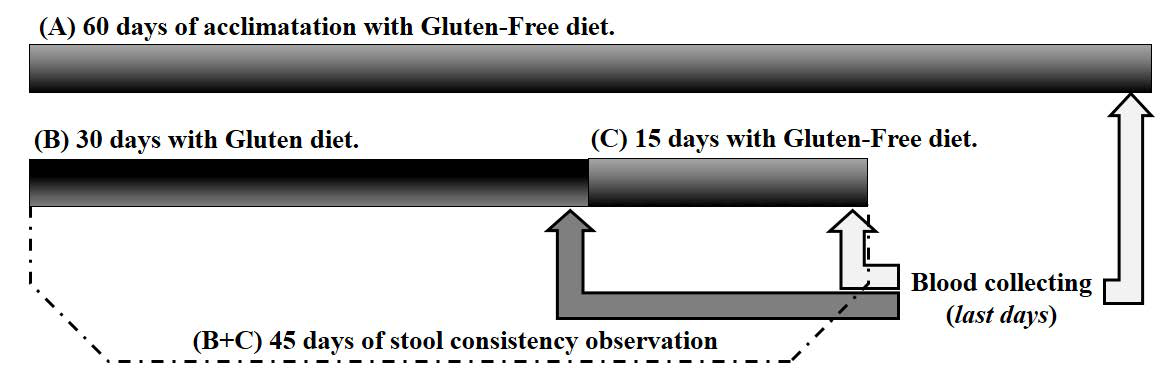Gluten diet alters the blood cytokine expressions in Spix’s Saddleback Tamarin (Leontocebus fuscicollis) kept in captivity in the Amazon region
DOI:
https://doi.org/10.4238/gmr2394Keywords:
Callitriquids, Gene expression, Gluten diet, Cytokine, Nohuman primatesAbstract
Callitrichids represent a wide diversity of primates from the New World and are excellent models for biomedical studies, one being the effect of diets that contain gluten. The objective was to estimate blood cytokine gene expressions in Spix’s Saddleback Tamarin (Leontocebus fuscicollis) submitted to periods with a gluten diet (GD) and a gluten free diet (GFD). Ten animals were monitored for stool consistency and blood samples were collected. Gene expressions were determined using RTPCR and analyzed statistically. The GD alters the consistency of stools to softened and diarrheic. All genes showed significant differences between the two diet periods. The NEF2, CD83 and HLA-DQB1 genes increased their expressions significantly in the shift from GFD to GD period, and when reintroduced to the GFD the expressions normalized and, TNFSF13B decreased significantly and decreased with the reintroduction of the GFD. The HLA-DQA1 gene decreased its expression from the GFD to GD, but decreased significantly when reintroduced to the GFD. We conclude that some blood cytokine specifics for celiac patients also altered in Leontocebus fuscicollis with GD and may normalize with GFD reintroduction, or decrease their expressions, which is quite different from celiac humans who persist in high or low expressions for life.




